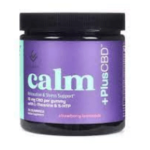CBD oil has gained significant attention in recent years due to its potential health benefits. One area of interest is its effects on blood pressure. Many people wonder whether CBD oil can actually lower blood pressure and if it could be a natural alternative to traditional medications.
In this article, we will explore the scientific evidence behind CBD’s effects on blood pressure, the role of CBD in stress reduction, and the importance of clinical studies and research.
Understanding CBD and its potential benefits is essential before delving into its effects on blood pressure. Cannabidiol (CBD) is a non-psychoactive compound derived from the cannabis plant. It has been widely studied for its various therapeutic properties, including anti-inflammatory, analgesic, and anxiolytic effects.
While research is still ongoing, there is growing evidence suggesting that CBD may have a positive impact on blood pressure levels. However, it is important to approach this topic with caution and consult with healthcare professionals before considering any changes to existing treatment plans or medication regimens.
Understanding CBD and its Potential Benefits
CBD oil has garnered attention for its potential benefits and is being studied for its effects on various health conditions.
One of the main reasons people are interested in CBD oil is its potential to provide therapeutic effects.
Research suggests that CBD oil may have a range of benefits, including reducing pain and inflammation, alleviating symptoms of anxiety and depression, and even improving sleep quality.
However, it’s important to note that while there is promising evidence supporting these claims, more research is needed to fully understand the effectiveness of CBD oil in treating these conditions.
Additionally, it’s worth mentioning that individual responses to CBD oil may vary, as factors such as dosage and frequency of use can influence its effects.
The Link Between CBD and Blood Pressure
The connection between cannabidiol and cardiovascular health has piqued the interest of researchers, leading to investigations into its potential impact on hypertension. Studies suggest that CBD oil may have benefits in reducing blood pressure levels.
The first sub-list explores the potential mechanisms through which CBD may lower blood pressure:
- Vasodilation: CBD has been found to induce vasorelaxation, which can lead to a decrease in blood pressure by widening the blood vessels.
- Anti-inflammatory effects: Chronic inflammation is linked to high blood pressure, and CBD’s anti-inflammatory properties may help reduce inflammation and subsequently lower blood pressure.
The second sub-list delves into considerations regarding CBD oil dosage for managing blood pressure:
- Individual variation: The optimal dosage of CBD oil for lowering blood pressure may vary depending on factors such as body weight, metabolism, and the severity of hypertension.
- Consultation with healthcare professionals: It is important for individuals considering using CBD oil for managing their blood pressure to consult with healthcare professionals who can provide guidance on appropriate dosage and monitor its effects.
While research on the link between CBD oil and blood pressure is still ongoing, these preliminary findings highlight its potential as a natural alternative in managing hypertension. However, it is crucial for individuals to seek professional advice before incorporating CBD oil into their treatment regimen.
The Science Behind CBD’s Effects on Blood Pressure
Research into the effects of cannabidiol on blood pressure has shed light on the underlying scientific mechanisms that may contribute to its potential as a natural treatment for hypertension. CBD’s mechanism of action on blood pressure is thought to involve several pathways.
One key pathway is through its interaction with the endocannabinoid system, which plays a crucial role in regulating cardiovascular function. CBD has been found to activate certain receptors within this system, leading to vasodilation and a decrease in blood pressure.
Additionally, CBD has shown anti-inflammatory and antioxidant properties, which can help reduce vascular inflammation and oxidative stress – both of which are factors that contribute to elevated blood pressure.
While more research is needed to fully understand the specific mechanisms involved, these findings suggest that CBD may have therapeutic potential in managing hypertension.
However, it is important to note that CBD can interact with other medications due to its effects on liver enzymes responsible for drug metabolism. Therefore, individuals taking other medications should consult with their healthcare provider before incorporating CBD into their treatment regimen.
The Role of CBD in Stress Reduction
Stress reduction is a common goal for many individuals, but can the use of cannabidiol aid in achieving this desired outcome?
Research suggests that CBD may play a role in anxiety management and sleep regulation, both of which are closely linked to stress.
Studies have shown that CBD interacts with receptors in the brain that are involved in regulating emotions and mood, potentially reducing anxiety symptoms.
Additionally, CBD has been found to have sedative effects, promoting relaxation and improving sleep quality.
By addressing these key factors related to stress, CBD may offer potential benefits for individuals seeking stress reduction.
While more research is needed to fully understand the mechanisms behind CBD’s effects on stress, early findings indicate its promising role as an adjunct therapy for managing stress-related symptoms.
The Importance of Clinical Studies and Research
Clinical studies and research are crucial in establishing the effectiveness and safety of cannabidiol as a potential therapeutic option for various health conditions.
Evidence-based research provides valuable insights into the benefits and potential risks associated with CBD use, allowing healthcare professionals to make informed decisions when recommending it to patients.
Clinical trials play a pivotal role in determining the efficacy of CBD oil in lowering blood pressure by examining its effects on individuals with hypertension over a specified period.
These trials involve rigorous protocols, including randomized control groups and placebos, to ensure accurate assessment of CBD’s impact on blood pressure.
Additionally, clinical studies help identify any potential side effects or drug interactions that may arise from using CBD oil for blood pressure management.
By adhering to stringent scientific methodologies, evidence-based research conducted through clinical trials provides objective data that can guide medical practitioners in utilizing CBD oil as a therapeutic intervention for hypertension.
Exploring the Results of the Journal of Clinical Investigation Study
Moving on to the current subtopic, it is important to explore the results of the Journal of Clinical Investigation study regarding the effects of CBD oil on blood pressure.
This study aimed to investigate whether CBD oil has any impact on lowering blood pressure levels.
The findings suggest that CBD oil may have potential benefits in reducing blood pressure, particularly in individuals with high blood pressure.
However, it is crucial to note that this study had certain limitations which should be taken into consideration when interpreting the results.
For instance, the sample size was relatively small and may not represent a diverse population.
Additionally, the study duration was limited, and long-term effects of CBD oil on blood pressure remain unknown.
Therefore, further research is needed to validate these initial findings and determine the optimal dosage and duration for achieving consistent results.
While this study provides promising insights into alternative therapies for managing blood pressure, it is essential to approach these findings with caution and continue exploring other potential avenues for hypertension management.
Factors to Consider When Using CBD for Blood Pressure
Factors to consider when using cannabidiol (CBD) as a potential treatment for hypertension include individual variations in response, the influence of concomitant medications, and the need for further investigation into long-term safety and efficacy.
CBD oil dosage can vary depending on factors such as body weight, severity of symptoms, and individual sensitivity. It is important to start with a low dose and gradually increase it to find the optimal dosage that works for each individual.
Additionally, potential interactions between CBD and other medications should be taken into account. CBD has been shown to interact with certain enzymes responsible for metabolizing drugs in the liver, which may affect how these medications are processed in the body. Therefore, it is essential to consult with a healthcare professional before incorporating CBD oil into an existing medication regimen.
Further research is also needed to assess the long-term safety and efficacy of CBD as a treatment for hypertension, as current studies have primarily focused on short-term effects.
Read Also: Cbd Made Me Feel Weird
Finding the Right Dosage and Method of Administration
Moving on from the factors to consider when using CBD for blood pressure, it is crucial to find the right dosage and method of administration.
Determining the appropriate dosage is essential as it can significantly impact the effectiveness of CBD in lowering blood pressure. Since everyone’s body reacts differently to CBD, finding the optimal dose may involve some trial and error. It is recommended to start with a low dose and gradually increase until the desired effects are achieved while closely monitoring blood pressure levels.
Alongside dosage, selecting an appropriate method of administration is equally important. There are various ways to consume CBD, including oral ingestion through capsules or oil tinctures, inhalation through vaping or smoking, topical application through creams or lotions, and sublingual administration under the tongue. Each method has its advantages and disadvantages in terms of onset time, duration of effect, bioavailability, and ease of use.
Considering individual preferences and needs can help determine which administration method suits best for managing blood pressure effectively.
Potential Side Effects and Risks of CBD
One important aspect to consider when using CBD for blood pressure management is the potential side effects and risks associated with its use.
While CBD is generally considered safe, it can still have some unwanted effects on certain individuals. It is important to note that these side effects are usually mild and temporary, but they can include fatigue, dry mouth, diarrhea, changes in appetite or weight, and dizziness.
Additionally, there is limited research on the long-term effects of CBD use and its interaction with other medications. Therefore, it is crucial to consult with a healthcare professional before incorporating CBD into your treatment plan.
Furthermore, individual factors such as dosage and method of administration may also play a role in determining the likelihood of experiencing side effects. Some studies suggest that higher doses of CBD may increase the risk of adverse events. The way CBD is consumed can also affect its efficacy and potential side effects; for example, oral administration may lead to slower onset of action compared to inhalation or sublingual methods.
It is also worth considering lifestyle factors such as diet and exercise as well as any pre-existing medical conditions when assessing the risks associated with CBD use for blood pressure management.
Ultimately, a holistic approach that includes healthcare professional consultation and consideration of real-life experiences and testimonials should be taken when deciding on the best course of treatment for managing blood pressure using CBD. Future research will provide more insight into the potential benefits and risks associated with CBD use in blood pressure management.
Other Lifestyle Factors that Can Impact Blood Pressure
Another important consideration in managing blood pressure is the impact of lifestyle factors such as diet and exercise.
For example, a study conducted on a group of individuals with hypertension found that those who followed a Mediterranean diet and engaged in regular physical activity experienced significant reductions in their blood pressure levels.
Lifestyle modifications, including dietary changes, can play a crucial role in maintaining healthy blood pressure levels. Incorporating a balanced diet rich in fruits, vegetables, whole grains, lean proteins, and healthy fats can contribute to lower blood pressure.
Additionally, engaging in regular physical activity can help improve cardiovascular health and promote weight loss, both of which are associated with decreased blood pressure levels.
It is important to note that these lifestyle modifications should be implemented alongside any prescribed medical treatments and under the guidance of healthcare professionals.
Consulting with a Healthcare Professional Before Starting CBD
Consulting with a healthcare professional is essential prior to initiating the use of CBD as it allows for a comprehensive evaluation of individual health factors and ensures that any potential interactions or contraindications are taken into account.
Seeking healthcare advice before starting CBD can provide numerous benefits. Firstly, it provides an opportunity to discuss any pre-existing medical conditions or medications that could potentially interact with CBD. This is important because certain medications, such as blood thinners, may have adverse effects when combined with CBD.
Additionally, consulting with a healthcare professional allows individuals to receive personalized guidance on dosage and administration methods, ensuring optimal results. Moreover, healthcare professionals can offer valuable insights based on their knowledge and experience, helping individuals make informed decisions about using CBD for their specific health needs.
Overall, seeking consultation before starting CBD is crucial in order to prioritize safety and maximize the potential benefits of this natural remedy.
Real-life Experiences and Testimonials
Real-life experiences and testimonials provide valuable insights into the potential benefits of CBD usage, highlighting its effectiveness in addressing various health concerns. These testimonials offer a glimpse into how CBD oil has positively impacted individuals’ lives, shedding light on its potential to lower blood pressure.
Many users have reported experiencing a reduction in their blood pressure levels after incorporating CBD oil into their daily routine. While these personal accounts are anecdotal in nature, they contribute to the growing body of evidence supporting the potential benefits of CBD oil for managing hypertension.
However, it is important to note that individual responses to CBD may vary, and further research is needed to fully understand its effects on blood pressure regulation.
CBD Oil as Part of a Holistic Approach to Blood Pressure Management
Moving on from real-life experiences and testimonials, it is important to consider CBD oil as part of a holistic approach to blood pressure management. While individual anecdotes can provide valuable insights, it is crucial to examine the effectiveness of CBD oil in a broader context.
In recent years, there has been growing interest in alternative therapies for managing blood pressure, including the use of CBD oil. Research suggests that CBD may have potential benefits for reducing blood pressure levels and promoting overall cardiovascular health. However, it is essential to note that more rigorous scientific studies are needed to fully understand the effects of CBD oil on blood pressure regulation.
Additionally, it is important to view CBD oil as one component of a holistic approach that includes lifestyle modifications such as healthy eating habits, regular exercise, stress reduction techniques, and appropriate medical interventions. By incorporating these various elements into a comprehensive plan, individuals can strive towards achieving optimal blood pressure levels and overall well-being.
The Future of CBD Research and its Impact on Blood Pressure Treatment
Research into the potential benefits of CBD for blood pressure management is ongoing, and its findings have the potential to revolutionize the treatment of hypertension, offering hope and improved cardiovascular health for millions of individuals worldwide.
The future research on CBD’s impact on blood pressure will provide a deeper understanding of its mechanisms and effectiveness as a treatment option. As more studies are conducted, it is expected that researchers will uncover valuable insights into how CBD interacts with the body’s endocannabinoid system and influences blood pressure regulation.
These findings can then guide the development of more targeted and effective treatments for hypertension. Furthermore, exploring the long-term effects of CBD use in managing blood pressure will be crucial to ensure its safety and efficacy as a therapeutic intervention.
By addressing these gaps in knowledge through rigorous scientific investigation, we can pave the way for evidence-based guidelines that maximize treatment effectiveness while minimizing potential risks associated with CBD use in blood pressure management.
Frequently Asked Questions
Can CBD oil be used as a substitute for blood pressure medication?
While CBD oil shows potential as an alternative to blood pressure medication, its efficacy and safety are still under investigation. Side effects, such as drowsiness and interactions with other medications, should be considered before substituting it for prescribed medication.
Are there any known drug interactions between CBD oil and blood pressure medications?
There is limited research on the specific drug interactions between CBD oil and blood pressure medications. Further studies are needed to determine the potential effectiveness comparison and any possible adverse effects.
How long does it take for CBD oil to start lowering blood pressure?
The onset of action of CBD oil in lowering blood pressure varies among individuals, with some experiencing effects within minutes and others taking several hours. Side effects such as dry mouth and drowsiness may occur but are generally mild and transient.
Is there a specific brand or type of CBD oil that is more effective for lowering blood pressure?
There is no specific brand or type of CBD oil that has been proven to be more effective for lowering blood pressure. Further research is needed to determine if certain formulations or concentrations may have a greater impact.
Can CBD oil help with other cardiovascular health issues besides high blood pressure?
While CBD oil has been studied for its potential impact on high blood pressure, limited evidence suggests it may also have benefits for other cardiovascular health issues such as heart disease and arrhythmia. Further research is needed to fully understand its effects.
Conclusion
In conclusion, the potential benefits of CBD oil in managing blood pressure have gained attention in recent years. Scientific research suggests that CBD may have a positive impact on blood pressure due to its ability to reduce stress and anxiety levels. While further clinical studies are needed to fully understand the effects of CBD on blood pressure, early evidence shows promising results.
It is important to note that individuals should consult with a healthcare professional before incorporating CBD oil into their blood pressure management routine. This ensures personalized guidance and monitoring of any potential interactions or side effects.
Real-life experiences and testimonials also contribute to the growing interest in using CBD oil for blood pressure management. Many individuals report positive experiences with reduced stress levels and improved overall well-being when incorporating CBD into their daily routine.
When considering the use of CBD oil as part of a holistic approach to managing blood pressure, it is crucial to remember that it should not replace traditional medical treatments but rather complement them. A comprehensive approach that includes healthy lifestyle choices such as regular exercise, a balanced diet, and stress reduction techniques can help support overall cardiovascular health.
Looking ahead, more extensive research is needed to fully understand the long-term effects of CBD on blood pressure management. Continued scientific investigation will provide valuable insights into its potential role as an adjunct therapy for individuals with hypertension.
Overall, while the current body of research holds promise for utilizing CBD oil in managing blood pressure, it is essential to consult with healthcare professionals and rely on evidence-based information when making decisions about one’s health journey.
Additionally, it is important to consider potential drug interactions and side effects before incorporating CBD oil into a hypertension treatment plan.





 Cv Sciences Cbd Gummies
Cv Sciences Cbd Gummies